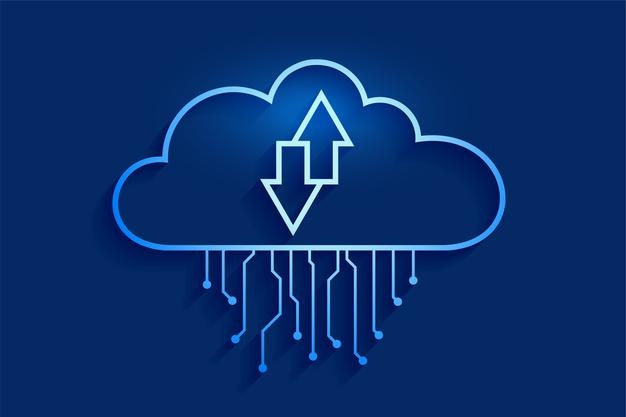You will agree that we have entered an era where our lives are made easier with increasingly sophisticated technology. We can easily and instantly send data, communicate remotely, and easily store important data through a technology called the cloud. What is cloud computing? According to Techopedia, cloud computing is the use of several types of services such as software development platforms, servers, storage, and software, over the internet, often referred to as “cloud”.
Still, in the quote from the same article, in general, there are 3 categories of cloud computing as follows:
- 1. Infrastructure as a Service (IaaS) for example like: DigitalOcean dan Amazon Web Services (AWS).
- 2. Platform as a Service (PaaS) for example like: Google App Engine, OpenShift, Windows Azure.
- 3. Software as a Service (SaaS) for example like: Google Apps (Docs, Spreadsheet, dll), Office 365, and Adobe Creative Cloud or PRTG on cloud.
For companies that have used cloud technology and those of you who haven’t and want to switch to the cloud, to better understand and familiarize yourself with cloud basics, you should also understand the pros and cons of cloud computing as we summarized from the article written by Chris Preimesberger and Kurt Marko. Check out the following explanation.
When compared to on-premise in terms of costs, the use of the cloud is indeed more pricey, but from a practical point of view, of course, the cloud can be an alternative or a substitute for on-premise. Here are some of the pros of cloud computing that you should know:
1. Lower operational costs
When compared to on-premise which requires you to provide tools and everything on-site, which can make the operational costs more expensive. Unlike on-premise, cloud computing is simpler because everything you need is stored on the internet so you can save your company’s operational costs with this cloud computing.
2. Unlimited storage capacity
The cloud provides unlimited storage capacity that you can’t get on-premises. Not only that, it’s also cheaper than having to buy new storage hardware and software on a regular basis.
3. Support mobility
Wherever and whenever you are, you can access your applications, data, and files using this cloud computing technology provided you have a safe and good internet connection.
4. Automatic backup/restore of your files and data
Cloud backup is a service where data and applications on a business server are backed up and stored on a remote server. Restore and back up important data and files to the cloud to keep them available to avoid system failures, outages, or other issues. You can back up files and data automatically to private or corporate servers.
5. More reliable infrastructure.
You can access multiple cloud locations which simplify redundant deployment. What you need to know is that some cloud services offer built-in multisite redundancy.
After you know what the pros of cloud computing are, you should also know the cons that are useful to weigh the benefits and disadvantages so that you can make a more informed decision.
1. Depends on internet connectivity
In contrast to on-premise, if you implement cloud computing for all your business in the company, it means that you have to depend on internet connectivity all the time. In addition to making your work easier, this can also hinder in the event of a power outage, disconnected lines due to local construction, etc. To avoid these things, you should also have to think of a solution such as a backup hotspot (or personal storage backup hardware).
2. Vulnerability of theft and data leakage
As we know, there are many cybercriminals who can threaten us at any time. Even though your cloud provider is trusted, you must remain alert to cybercrimes that can attack security systems to leak data and commit important data theft. A data leak is the unauthorized disclosure of sensitive information through vulnerabilities in the digital landscape. This threat is usually carried out via the web, email, or through your mobile data storage device.
3. Complex shared security model
Next is cloud computing has a complicated shared security model. Security policies and management are shared between users and providers. Understanding the division of responsibilities is important because if something goes wrong it can expose your sensitive data.
Those are some of the pros and cons of cloud computing that we have compiled especially for you. If you are interested in cloud computing, Netmonk as an Indonesian network monitoring application provider now provides a cloud system that can make it easier for you to monitor your company’s network devices. How does it work? Visit our website or contact our marketing team to try the free trial.
References:
https://searchcloudcomputing.techtarget.com/tip/Explore-the-pros-and-cons-of-cloud-computing
https://www.zdnet.com/article/cloud-computing-pros-and-cons/
https://www.techtarget.com/searchcloudcomputing/definition/cloud-computing
